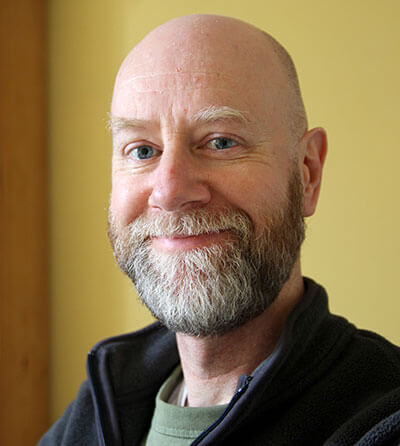|
THE CRUCIBLE BY ARTHUR MILLER
Abingdon Drama Club Unicorn Theatre, 18 Thames Street, Abingdon-on-Thames, OX14 3HZ 28th, 29th November and 1st December 2018 Like millions of others, I have been aware of Arthur Miller's play, The Crucible, and its subject matter, for many years, but had never before seen an actual performance. That speaks volumes, not so much about my own personal tardiness, but rather the cultural influence of Miller's piece. That gap in my knowledge has now been filled, thanks to Abingdon Drama Club's spare, claustrophobic production in the well suited intimacy of the Unicorn Theatre. For those who do not know, The Crucible dramatises an historical event, the witch trials of 1692 that took place in Salem, Massachusetts. A group of town girls are caught dancing in the forest by the local Puritan pastor and immediately suspicions and accusations of witchcraft abound. The girls' collective hysteria leads them to accuse, first each other, and then a widening circle of townsfolk, of witchcraft and communing with the Devil. The motives: to exonerate themselves of guilt by turning state's evidence and to settle personal scores against their neighbours. The lead character is John Proctor (Terry Atkinson), a morally compromised man who has had a short-lived adulterous affair with Abigail Williams (Emma Bouffler), a servant in his household. Repenting of his sin, he has returned to his wife Elizabeth (Kate Brock), but Abigail is intent on revenge against the innocent and wronged woman. She accuses Elizabeth of witchcraft, a charge that is palpably false, given Elizabeth's character and the circumstances of the alleged crime. But this is not an environment in which due process and the principle of innocent until proven guilty hold sway any more. The accusations of the girls fit too neatly into the ideological agenda of the judiciary and the clergy to be dismissed as nonsense. The principle followed by the judges and clergy is 'believe the woman', no matter how fantastical or contradictory her accusation. Arthur Miller wrote The Crucible in response to the 'witch-hunts' of the House Un-American Activities Committee in the 1950s in the McCarthyite era. But, to a 21st century audience, perhaps more obvious parallels of the Salem witch trials are to be found, also in the US Congress, in the recent hysterical accusations made during the appointment of Brett Kavanaugh as Supreme Court Judge. Due process and 'innocent until proven guilty' are the defence of all generations against the hysteria and madness of crowds that can afflict any age. It is a tribute to the enduring strength and universal allegorical nature of Miller's play that it still has relevance half a century later in a very different world. The matinee performance that I saw was without the actor playing Deputy Governor Danforth, and the part was read, at short notice, by the director Michael Ward. I must admit that my heart sank slightly at the news, and I wondered if the tension of the play would be compromised by someone reading from a script. I need not have worried; Ward's performance was a strong one, and the presence of a folder with the script in fitted happily with a character who acts as a judge through the second half of the play. Terry Atkinson's John Proctor was an ordinary man placed in extraordinary circumstances at a vulnerable point in his life. The audience had no trouble in believing that he was torn apart by his conscience. He wished to save himself, but finally chose the path of truth, even at the cost of his own life. The intimate exchanges between Atkinson's Proctor and Kate Brook's Elizabeth Proctor convinced as a tale of marital reconciliation in the most trying of situations. Brook's wronged woman who forgives and loves her erring husband was one of the strongest aspects of this production. It sung out emotional truth. Duncan Blagrove played the pastor Samuel Parris as an opportunistic but ultimately weak man. He was initially cautious over accusations of witchcraft, but too easily gave in to the temptations of siding with the current of events. Arthur Blake turned in a splendid performance as Rev. John Hale – a clergyman who initially supports the accusations of witchcraft, but who changes his mind and tries to save the lives of John and Elizabeth Proctor. He is a man riven with guilt at his own part in their downfall. The only way Proctor can save his life is by perjuring himself with a false confession to witchcraft. Hales sees the irony of trying to achieve good by means of what is morally wrong, as he urges Proctor to lie to the authorities. Blake gave us first a cold, puritanical servant of Calvinistic godliness and then a sympathetic advocate of mercy. Millie Pallavicini was well cast as Mary Warren, a girl in thrall to the hysteria of her friends, who tries, but fails, to do the right thing. Having decided to testify to the innocence of Elizabeth Proctor, the lies of Abigail Williams draw her back to the madness of the group of young women and she condemns an innocent woman in spite of herself. Pallavicini gave an entirely credible portrayal of a woman who knows she is doing wrong, hates it, but cannot stand up against evil. There was also a fine ensemble performance by members of ADC's youth group as the girls accused of witchcraft. Full marks to director Michael Ward for choreographing these scenes and visualising how group hysteria turns individuals into a blob where personal agency seems to be abandoned. A word of praise for the set design, a model of economy and appropriate atmosphere. This was essentially a black box production, but with black wooden panels instead of curtains, and doors and windows varying from scene to scene. The use of a single, powerful source of light in each case (through windows or doors) gave the play a strongly chiaroscuro appearance. This black and white design not only chimed in with the black and white of Puritan dress, but also the black and white moral outlook of the hunters of witches. It was also remarkably claustrophobic and airless (the set, not the auditorium!) again fitting the play well. Perhaps the nicest tribute to the production was the stillness and focus of the audience, certainly during the performance that I attended. Congratulations to all concerned on a compelling reworking of a modern classic.
1 Comment
John Hawkins
3/12/2018 08:37:33
Thank you Mike for this review and all your efforts.
Reply
Leave a Reply. |
About the Author
Mike Lord has been involved with amateur theatre for over twenty years, mainly as an actor but also, more recently, as a director. Archives
July 2019
Contact me
Please use the Contact Form for anything apart from comments on blog posts. |


 RSS Feed
RSS Feed
